The Depth of Diversity
There has been much talk on the need to promote diversity and inclusiveness in the workplace. In fact, studies have shown that companies which embrace this culture outperform those that do not. NUS alumni offer their take on the topic.
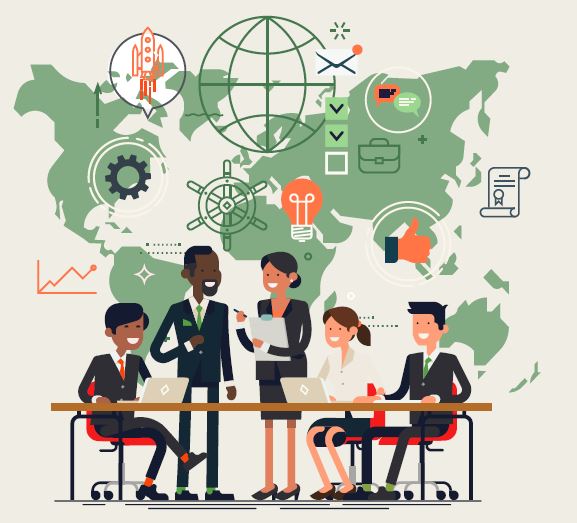
What does the term ‘diversity in the workplace’ mean to you? And do you think it exists in your work environment?
LING LING: To me, it means having a mix of employees from different backgrounds and races/nationalities, and who speak different languages. There is in fact great diversity in the law firm that I am in now.
MOHAMMAD: I too think ‘diversity’ implies this. Our start-up comprises six people from four different countries — I think that speaks to how diverse our company is. There is also diversity in terms of technical skills. We recruit people of varying specialties which include business, engineering and sales.
BETTY: On top of race and religion, diversity also means a gamut of backgrounds. This refers to what the employee studied in school, and as a result, his or her respective area of expertise. My team at Procter & Gamble (P&G) comprises people from France, Japan, Italy, China and Turkey. Then there’s me, a born and bred Singaporean. But in spite of our diversity, we have a common business goal, so there is a sense of inclusion.
JUNXIAN: My company, Moovaz, is a software firm that does international relocation. By nature, we already interface with people globally. Their respective demands are different, as are the ways they view our products. I look at “diversity” from a more antithetical perspective. Rather than trying to force diversity down our company’s throat and maintain a certain ratio within the company, we make a conscious effort to hire people who can offer different opinions and value to the table. That is fundamental to us, and helps us expand our talent pool.
Why in your opinion is diversity in the workplace so important?
MOHAMMAD: As a start-up, the structure in our company is flat, not hierarchical. An exchange of ideas from a diverse group is a good thing as it helps us make our product better. This is important if we want to get to the next stage and keep growing.
BETTY: Diversity is a catalyst for innovation. Understanding the cultural nuances in each country helps us better innovate for the world’s consumers. There is thus a higher chance that the product we create can make a greater impact on people’s lives. Besides being good for business, diversity also brings about a more vibrant workplace environment. Lunchtime conversations, from my personal experience, are also very interesting!
JUNXIAN: In a start-up, ideation is key. How fast we can iterate correlates to how fast we can go to market. Therefore, it helps to have a diverse group of people as each one tends to look at the problem very differently, and can come up with more creative solutions.
OUR PANEL
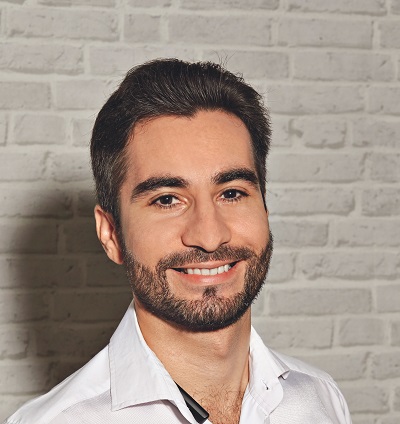
(ENGINEERING ‘16) 29, CEO AND FOUNDER AT HYDROLEAP
MR MOHAMMAD SHERAFATMAND

(ENGINEERING ‘12)
29, RESEARCHER
AT P&G
MS BETTY TSAI
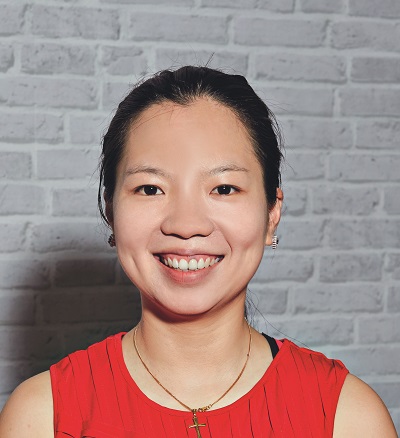
(LAW ‘07) 34, LAWYER AND PARTNER AT RHTLAW TAYLOR WESSING LLP
MS LUO LING LING
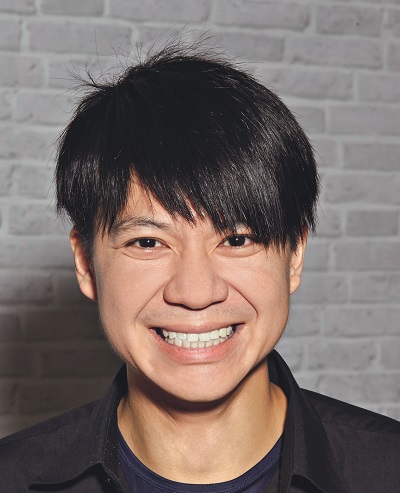
(BUSINESS ‘08)
34, CO-FOUNDER AT MOOVAZ
MR LEE JUNXIAN
From your observation, is there an age bias — towards the young or the old — at work?
LING LING: There are certainly stereotypes. For example, there is an assumption that older workers are not as ambitious or driven, and willing to devote only a limited amount of time to work. From my experience, that’s not true! I’ve seen older workers who are willing to work hard, if not harder, than the younger staff. If need be, they stay late as well. So to me, this is an unfair stereotype.
MOHAMMAD: At work I deal with a number of younger people — interns mostly. The stereotype about fresh graduates is that their expectations can at times be too high even at the start of their career. They expect to hold great positions in great companies because they come from a reputable university and have done well academically. These are achievements undeniably, but they have to also keep in mind that they lack industry experience. My advice is to stay humble and be open to learning from more experienced colleagues. We’ve all had to hustle in the beginning. That being said, I do applaud young staff for being bold in expressing their opinions and ideas. In a start-up, every single idea is welcomed, so I do in fact encourage even new-hires to speak up.
JUNXIAN: Millennials are frequently accused of being entitled. They grew up in the age of the Internet and are therefore accustomed to instant gratification. As such, they can be perceived as impatient. However, I don’t think it’s their fault — this is after all the world they are born into. I find that the youths of today all want to create impact, and this is good. The problem is that some can only see the summit but not the mountain they first have to climb — there is no shortcut.
BETTY: I guess I speak for the millennials you just mentioned. Indeed, my manager often has to remind me to be patient. In my first couple of years at the company, I was always asking for feedback on my work performance, and wanting to know if my project is creating impact. I do have another manager who would actually listen to the progress I’ve been making and offer advice as to how best to move forward. The direct feedback motivates me to make my project happen.
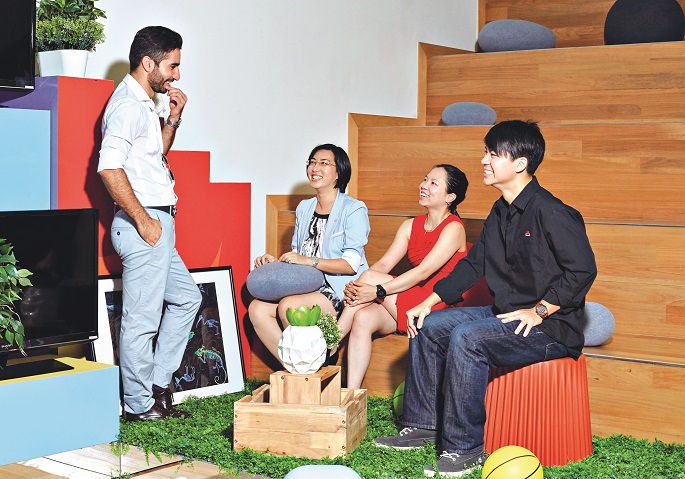
Has the issue of race ever come into play to affect one’s value as an employee based on your experience?
LING LING: Not at all. I don’t think race plays a part at work, at least not in all the companies I’ve been in. We are in a way “colour-blind”. From my experience, each employee is measured by their performance, not their race.
BETTY: I agree. In my company, performance is key. We are expected to hit our success criteria no matter our age or birthplace — that’s the key to promotion, advancement and opportunity. On top of performance, it’s crucial to be adept at networking as being able to work well as a team is part of the company’s culture.
JUNXIAN: Yes, I agree. What’s way more important than race is how well the employee can fit into the company’s culture. Most companies now are cognizant about equal opportunities. The value you bring to the project and to the team comes first and foremost. No longer are employees discriminated based on race and ethnicity.
MOHAMMAD: As a quick background, I was born in Iran. I ended up in Singapore about seven years ago as I had wanted to experience Asian culture. It turned out to be a very good place to live in. I like that I don’t experience or have witnessed much racism. Singapore is also welcoming to foreigners who are keen on building their careers and setting up their business here.
Betty and Ling Ling, have you ever felt that you are at a disadvantage because of your gender?
LING LING: My first-hand experience at being discriminated is for being a pregnant mother. I was in another firm, on my first job, and carrying my fourth child. I disclosed that I was expecting when I was about five months into the pregnancy. A few days later, I received an employment termination letter. Being a woman and a mother can at times put me at a disadvantage. I’ve been on the receiving end of disparaging remarks such as “Did this [unfavourable incident] happen because you had to go home to your kids?” when that certainly was not the case, or “I think a mother should stay at home”. There are still people who think the mother must be the children’s primary caregiver, which is no longer relevant in today’s world. My husband in fact contributes more time to taking care of our kids because I pull quite a number of late nights. The stereotype that women can’t contribute or be successful in their careers should cease.
BETTY: At P&G Asia-Pacific, women hold 50 per cent of the leadership roles. In the past three to five years, there has been an increase in the number of leadership programmes conducted for female employees (but also open to males) organised by the ‘Women in Innovation’ group within the company. These are certainly welcomed. Some years back, I was keen on applying for a modelling stimulation position in Boston, USA, but I hesitated as I did not quite understand two points in the job description. My brother urged me to go for it anyway and to read up on those two points before my interview. I ended up getting the job. I find that women tend to feel that they have to be 100 per cent ready and equipped for the role they covet while men somehow have this confident to just press on even if they are not fully qualified. Hopefully, through more leadership programmes in the workplace, women too feel empowered to be as bold.
Junxian and Mohammad, any thoughts on the issue of gender disparity?
JUNXIAN: Half of our manpower is made up of women. I think this problem is not as pronounced in Singapore because we are exposed to western ideologies. But because we have offices overseas as well, I personally find that things are not as equal in other countries. In Jakarta for example, it is considered more significant to be a man — there’s quite a fair bit of gender stereotypes still being held on to.
MOHAMMAD: Since we are a tech start-up, the focus is very much on tech skills. These are what we look for in a potential hire whenever we put up a job opening. Gender in our company is inconsequential.
Any positive example of diversity in the workplace that you’ve experienced and would like to see more of?
LING LING: My mentor, who is an Indian man, and I have a very good working relationship. He’s no longer practising and has now become my client. When I became a lawyer, he had been practising for some 25 years, which meant that he got called to the bar when I was born! I was young and inexperienced but hungry to learn. When I was just one year and 11 months into the job, he gave me the opportunity to argue in a court of appeal hearing. He could have just made me do all the preparatory work and argued the case himself, but he didn’t. This was unheard of for a lawyer as young as I was, but we won. I will be forever grateful for that opportunity.
JUNXIAN: Every week, our chief technology officer will gather staff from different departments and get their perspectives on our up-and-coming products or services. These sessions are often exciting as we each look at the products and problems from a different lens. Diversity enables for the best and most well-rounded product to be made. To me, that’s the strength of having a diverse workforce.
THE DEFINITION
Diversity in the workplace usually means ensuring employees better reflect the company’s or brand’s customer base in categories such as gender, generation, ethnicity and disability (inherent diversity); and hiring people with a wide range of skills, experiences and industry backgrounds (acquired diversity).